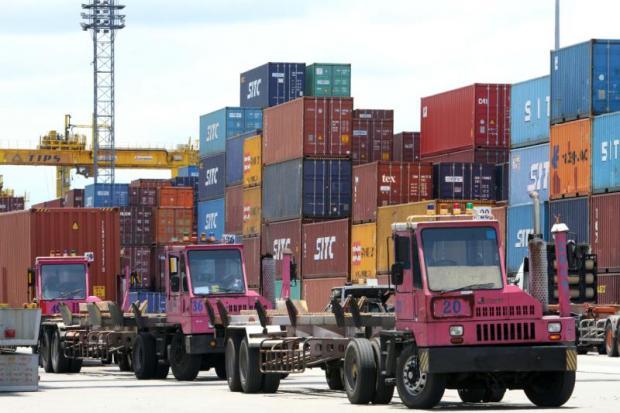Thailand: Shippers less bullish on full-year exports
Although the Thai government and several organisations are optimistic about Thai exports, the Thai National Shippers’ Council (TNSC) remains pessimistic and is keeping its annual export growth outlook unchanged at 5%, saying several potential hiccups could disrupt exports before the year’s end.
Exporters are still concerned about uncontrollable factors that could hurt shipments, particularly the baht, which is expected to continue to appreciate, said TNSC chairwoman Ghanyapad Tantipipatpong.
“More capital inflow keeps coming into Thailand, which would strengthen the baht and hit the competitiveness of Thai exports,” she said.
The baht has risen 7.9% this year as the best-performing currency in Asean, largely due to the weakness of the dollar, raising concerns among Thai shippers that an even stronger baht could hurt exports.
But Thai shipments have bucked the trend over the past few months, with exports seeing double-digit year-on-year rises.
The strong showing has encouraged the government to raise its 2017 export growth forecast to 7% from 5%.
Commerce Minister Apiradi Tantraporn said the ministry expects 2017 export value to rise by 7% to US$230.5 billion (7.66 trillion baht).
The Joint Standing Committee on Commerce, Banking and Industry (JSCCIB) is also expected to revise its 2017 export estimate in line with the Commerce Ministry, expecting growth to reach 4%, up from the previous forecast of 3.5-4%.
There will likely be more baht-strengthening capital inflow into Thailand in the second half, Ms Ghanyapad said, which is enough of a concern to make the TNSC cautious about exports this year and keep its growth forecast at 5%.
Another concern is falling oil prices, which could drag other commodity prices down and make the value of farm product exports lower than expected.
“That would also affect export value and make it harder to meet the new 7% target set by the government,” Ms Ghanyapad said.
As well as economic factors, there are other external concerns, particularly sudden geographical risks that could disrupt exports.
Tensions in the Korean Peninsula could escalate and affect the economic climate, Ms Ghanyapad said.
Wisit Limluecha, vice-president of the TNSC, said exporters are concerned about the stronger baht not only cutting their revenue, but also hurting farm income, as the pressure would be on to buy farm products at a lower rate in order to cut costs.
Mr Wisit said the revenue of exporters has been cut by around 2% by the stronger baht, which will start to adversely affect their supply chain and the financial situation of farmers.
Source: http://www.bangkokpost.com/business/news/1318467/shippers-less-bullish-on-full-year-exports


 Thailand
Thailand




